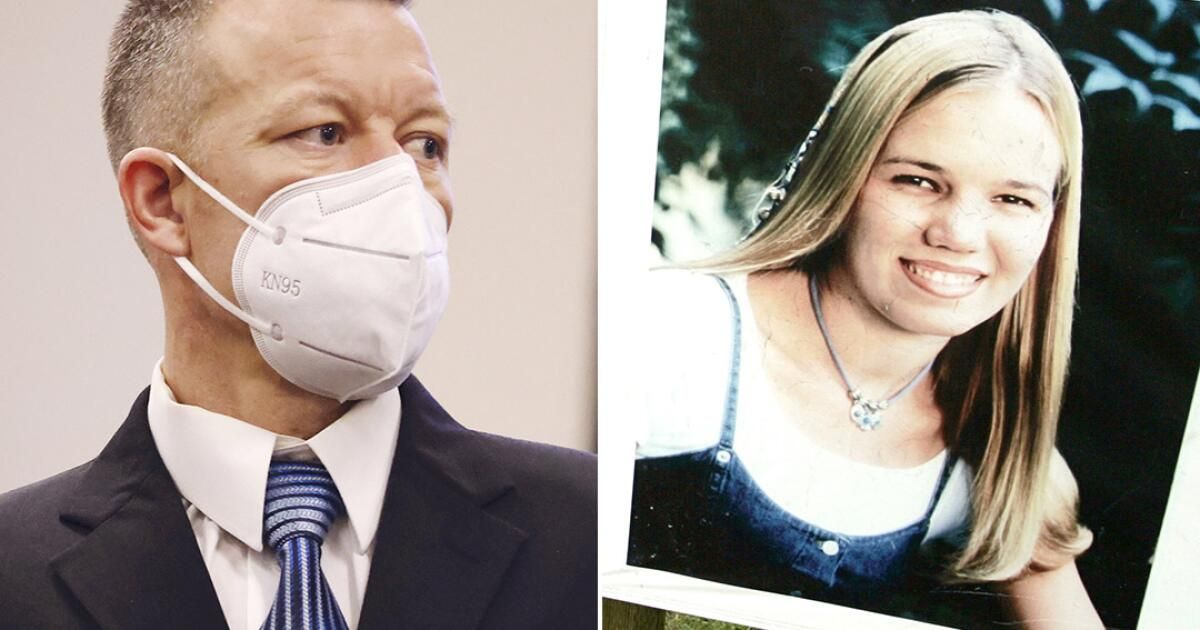More than 27 years after the disappearance of Cal Poly San Luis Obispo student Kristin Smart, her family is suing the university, alleging that its police force ignored multiple reports of suspicious behavior by the Cal Poly student who would turn out to be her killer.
Paul Flores, who was the last person seen with Smart, 19, after a Memorial Day weekend party in 1996, was convicted in October 2022 of murdering her. But her body has never been found.
“There is no doubt that Cal Poly failed our daughter, Kristin Smart, in multiple ways before and after her tragic murder at the hands of Paul Flores,” the Smart family said in a statement Monday. “Had the university acted appropriately, conducted a thorough investigation into Flores' past behavior, and implemented appropriate disciplinary measures, Kristin would likely still be alive today.”
Smart's parents, Stan and Denise Smart, his brother, Matthew Smart, and his sister, Lindsey Stewart, claimed in the Superior Court lawsuit that they did not fully understand the university's failure until its president apologized in May. Her lawsuit, filed Thursday, alleges negligence, wrongful death and negligent infliction of emotional distress.
The lawsuit also alleges that mistakes made by university police allowed Flores to rape other women in the years since. The family is seeking compensation for unspecified damages.
“Cal Poly's violations of its legal duty include, but are not limited to: failure to promptly pursue a missing person case, failure to interview witnesses in a timely manner, failure to seal the primary suspect's bedroom as a crime scene, did not allow the suspect's room to be “disinfected and cleaned before being searched, and did not search the suspect's room until sixteen days after Kristin disappeared,” the family's attorneys alleged in the lawsuit.
University police failed to fully investigate in the early stages, dismissing her disappearance and ignoring reports they had of Flores' “threatening, stalking, and harassing behavior,” the lawsuit states. Kristin Smart was last seen walking to her bedroom with Flores on May 25, 1996.
“If Cal Poly had acted appropriately on those reports, conducted an investigation, and appropriately disciplined [Flores]would not have been on campus and therefore would not have been able to murder Kristin,” the lawsuit alleges.
Smart's disappearance and murder investigation have haunted the Central Coast university community for decades, with posters calling for evidence to convict her killer. She was declared legally dead in 2002.
Two of her friends contacted university police the day after she disappeared. But officers refused to take a report and told friends they wanted to wait until after Memorial Day weekend, according to the lawsuit. Smart's mother was told that Kristin probably went camping, despite Smart's mother's insistence that it wasn't like Kristin to do so, the lawsuit states.
In May, Cal Poly President Jeffrey Armstrong publicly stated: “We are very sorry for what the Smart family has endured. What they have gone through is unimaginably heartbreaking and I feel for them in a way I cannot put into words. While it is a different administration now than it was in 1996, we recognize that things should have been done differently, and I personally wish they were.”
The university has declined to comment on the lawsuit, saying it does not discuss ongoing litigation.
The lawsuit alleges that Cal Poly police had the following reports about Flores in their possession before Smart disappeared:
- In December 1995, a Cal Poly student filed a report with university police alleging that Flores had been harassing her, including climbing the railing of the student apartment building to spy on her from her balcony. Cal Poly police detained Flores at the scene and identified him as the “culprit,” the lawsuit alleges.
- In January 1996, Flores was reported for vandalizing Cal Poly grounds and property while intoxicated. That same month, he was asked to attend a “Mediation/Information Meeting” because he had allegedly harassed a university staff member, according to the lawsuit.
- In March 1996, three Cal Poly students filed reports with university police accusing Flores of harassment and harassment. According to the lawsuit, Flores called them repeatedly on the phone for six weeks and filled their answering machine with silent hang-up calls. They also alleged that Flores had climbed onto his balcony and attempted to break into his apartment in December 1995, according to the lawsuit.
Additionally, the lawsuit alleges that in December 1994, Flores was arrested on suspicion of assault and battery, and the Cal Poly Police Department had access to the California Law Enforcement Systems database that includes those records.
“After learning of five reports of harassment, stalking, and violent behavior by Flores, any reasonable university would have initiated a disciplinary process involving Flores,” according to the lawsuit. “A reasonable university would have expelled, or at least suspended, Flores.”
The Smarts' lawsuit said Cal Poly's failures allowed Paul Flores to sexually assault and injure multiple women over the 25 years before his arrest on April 13, 2021. Two of those women testified that they were drugged and sexually assaulted in Los Angeles County in 2008 and 2011, respectively.
Robert Sanger, defense attorney for Paul Flores, concludes his case during closing arguments in Flores' murder trial on Oct. 5, 2022, at Monterey County Superior Court in Salinas.
(Laura Dickinson / San Luis Obispo Tribune)
In their cases, the prosecutor noted that Flores had offered to take the women home after meeting them, only to repeatedly drug and rape them at his home.
Flores is serving 25 years in prison. Last year, a group of scientists revealed data that they say showed signs of human remains in the soil of his mother's property.












